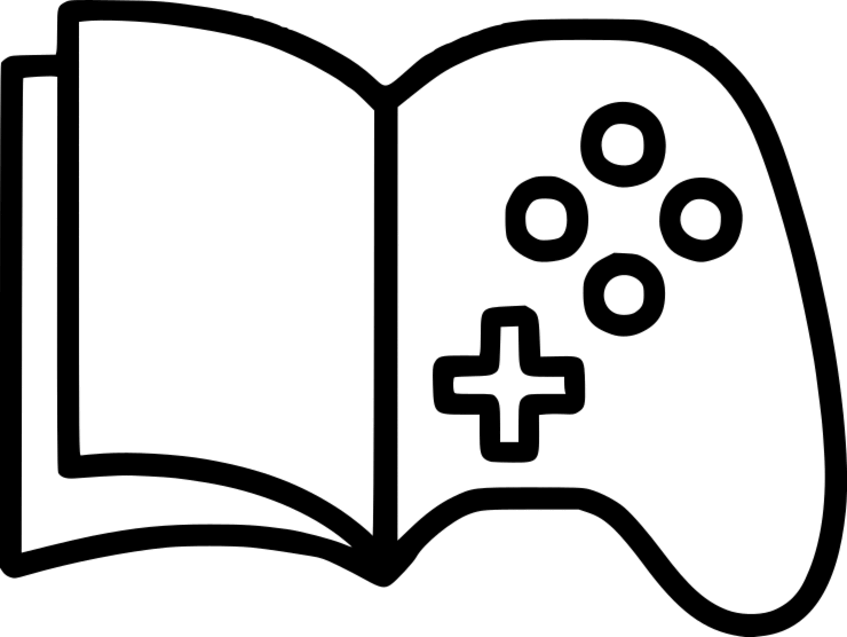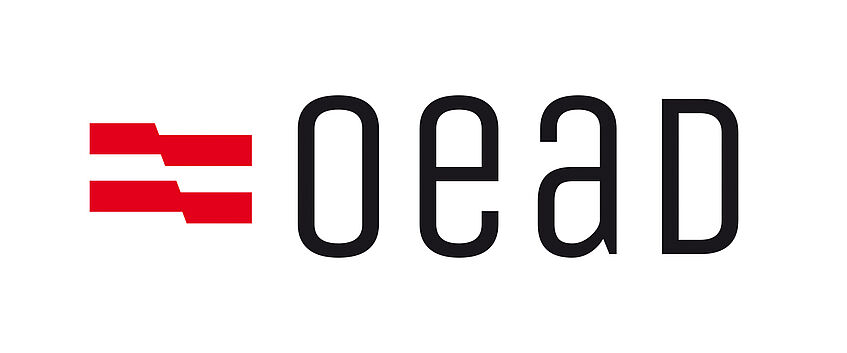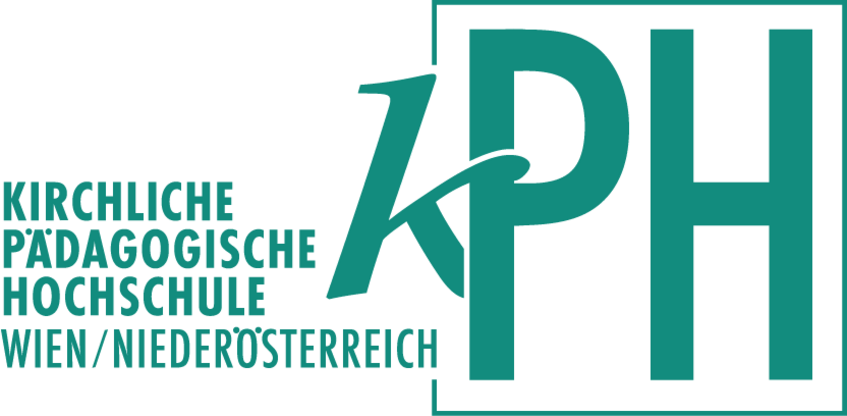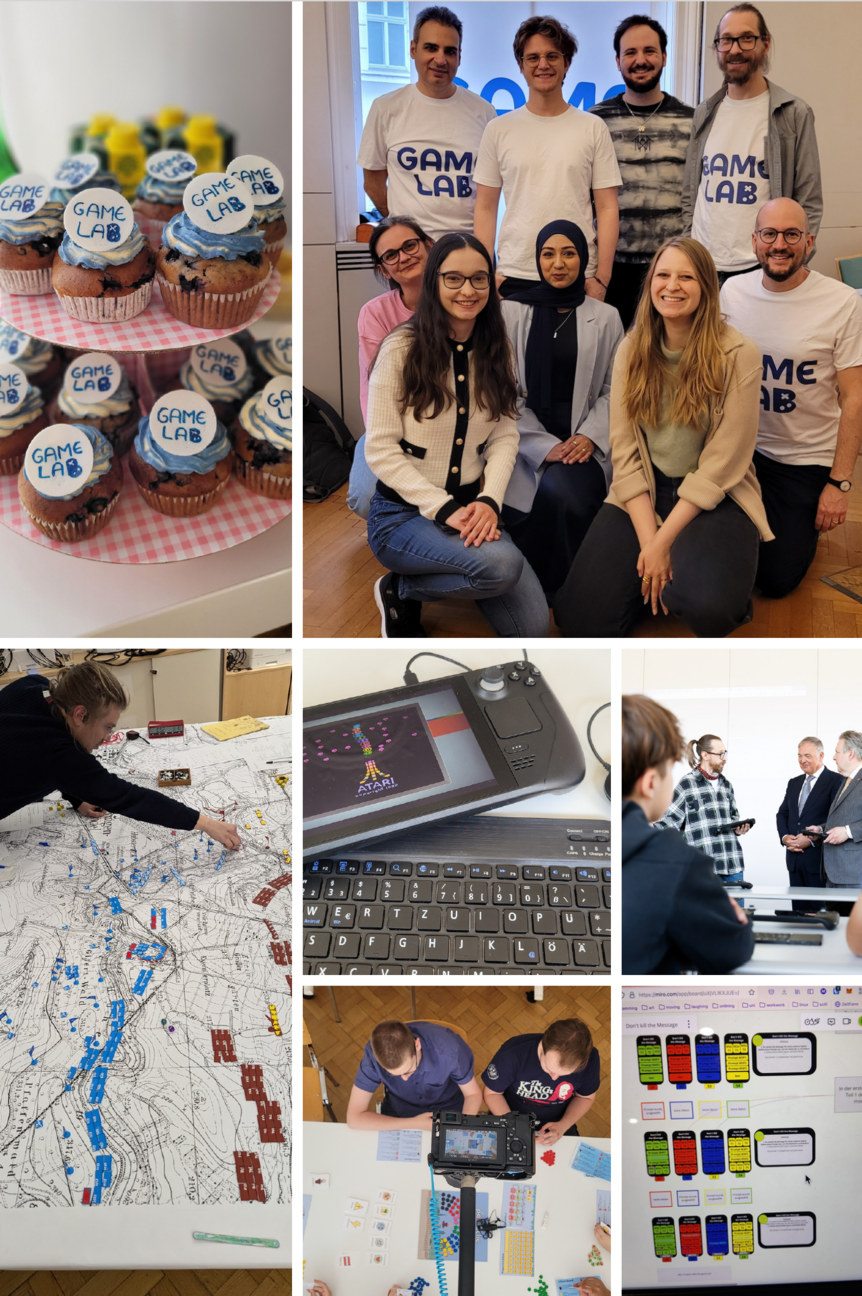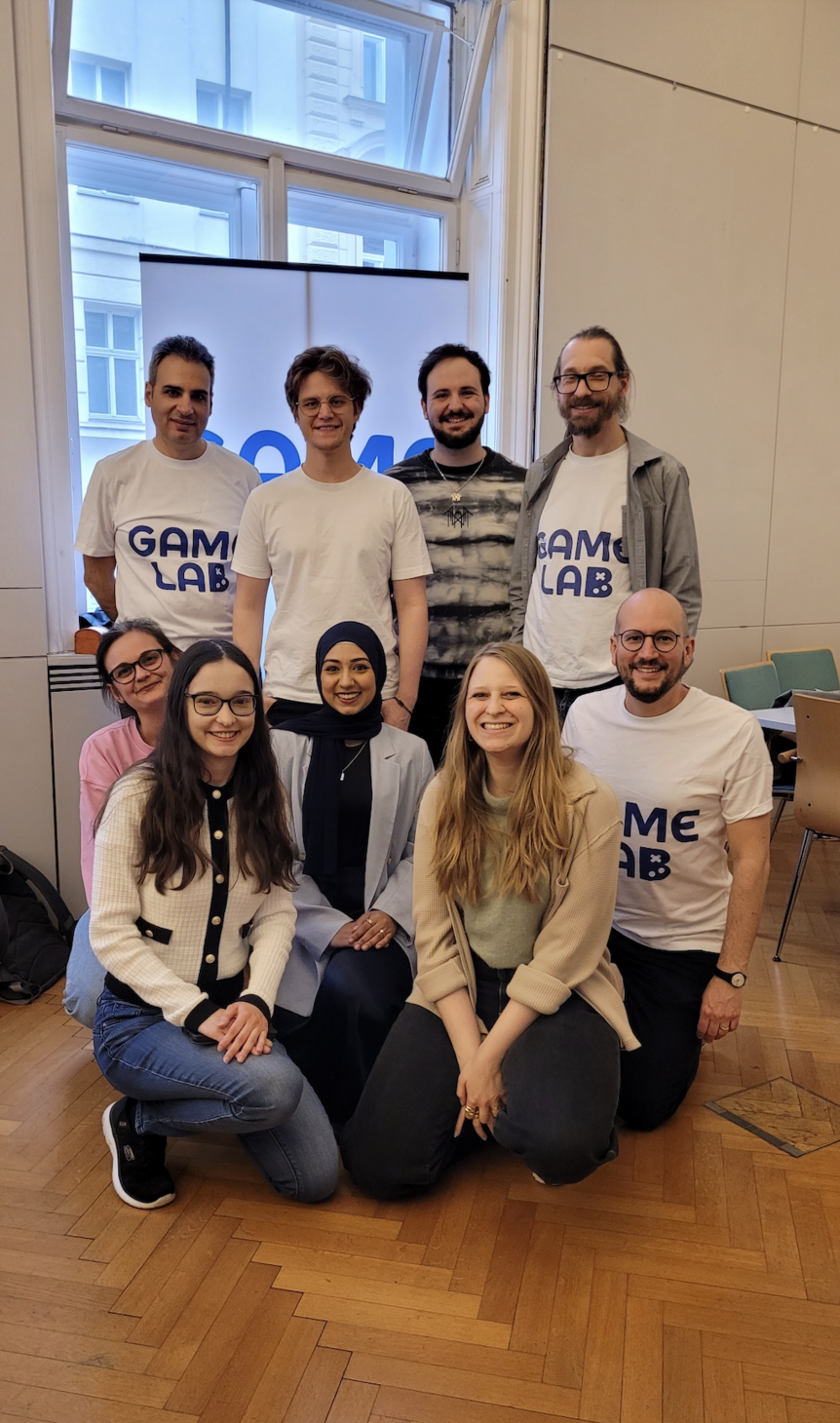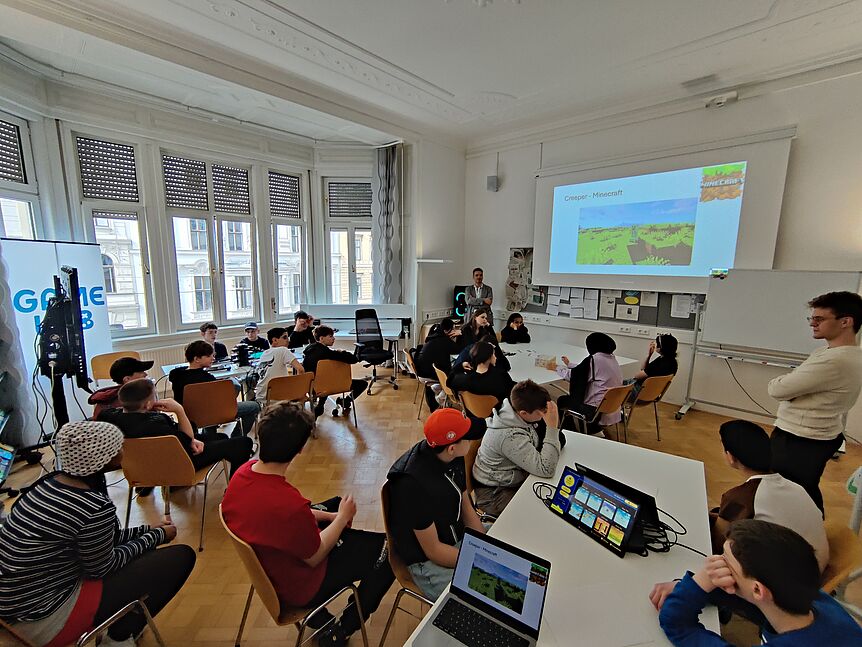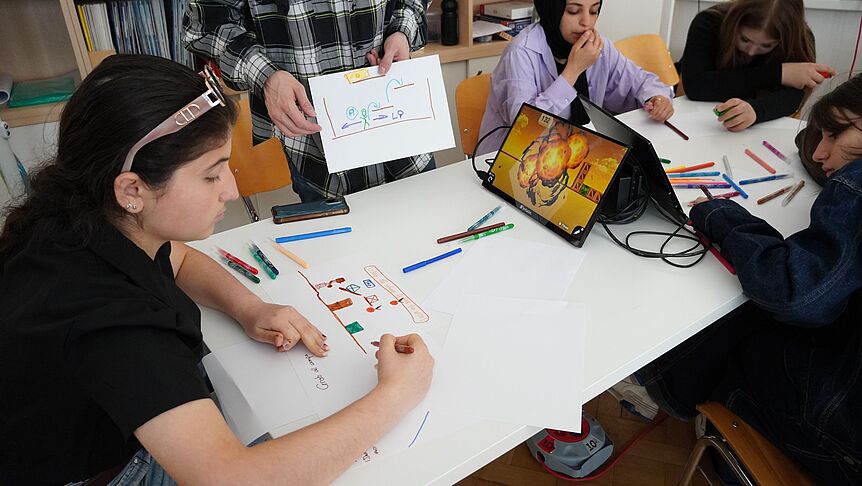Digital GameBase/D Learning
In the Sparkling Science project “Digital Game Base/d Learning”, scientists from the University of Vienna (ZLB/Didactics of History) and KPH Vienna/Krems are creating a commented database together with students. It presents digital games contextualized and analyzed for educational purposes. It will also offer didactic materials for pedagogues from all Austrian schools. The students play a central role in this since their handling and perspective will be surveyed on digital games and made usable for the didacticisation via the publicly accessible database. The schools involved agree to participate in around 2-3 workshops in the semester (SoSe 2025 up to and including WS 2026/27) with six to eight school hours each.
The project uses computer games as a medium in school lessons. The focus is on developing a digital, freely accessible database that contains specially curated games and didactic materials for subjects such as history, computer science, DGB, and German or geography. The platform is set up as a wiki, a technology that allows citizen scientists to expand and adapt.
The project is responding to the enormous and growing presence of digital games in everyday life and gamification in jobs, education, politics, and their possibilities for school learning. The GameLab, which has been set up at the University of Vienna over several years, offers a sound basis for the project through comprehensive game equipment and a team with a wealth of practical experience. The database will provide teachers with a source for lessons for the use of games in class, whereby curriculum references, concrete applications, and references to contextual conditions are explicitly addressed. The involvement of students as active co-creators is intended to help shape the content in a practical and appealing manner.
The experiences and suggestions of the pupils involved are incorporated directly into the database. We are working on the project with different secondary schools and commercial schools. This broad list will also shape the contents of the database: the design of the teaching-learning arrangements is co-creator-based and takes into account, among other things, the principle of “deeper learning”, which relies on active participation and reflection. Student teachers summarize the media products and collect research data in workshops using short teaching concepts, which they use to create teaching materials. These are tested and evaluated in further workshops to ensure a practical application. The database remains in place for use in regular lessons after the end of the project and is further informed and updated by the activities of the GameLab, which means that the content is long-term disseminated and further developed.
Particular attention is paid to the participatory role of the students who, as experts, actively participate in the research and creation of the content for their own play biographies and experiences. The close cooperation with the partner schools enables the participatory work that is relevant to the citizen scientist approach of the project. In addition, the project thus creates a framework in which the development of diverse materials should be possible, which is to integrate game-based education into the school system in a sustainable manner.

